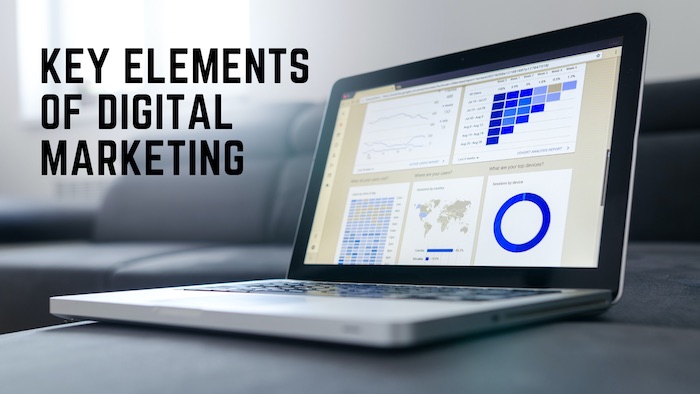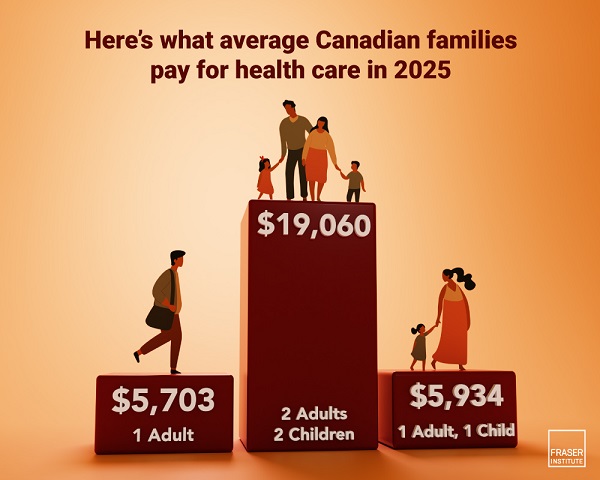Also Interesting
7 Basic Key Elements of Digital Marketing

Did you know that nearly half of all companies use digital marketing to promote their business online? Digital marketing strategies drive significantly higher revenue than traditional marketing. The benefits are innumerable.
If you don’t use digital marketing currently, you are missing out on potential leads and returns. You can get help from the best digital marketing companies to learn about these strategies. You can also enhance your digital marketing skills by learning about the seven best key elements of digital marketing mentioned in this article—
Building a Powerful Website
A powerful website is the best marketing asset to have. Having a user-friendly website helps to generate leads and increase product sales. The best digital marketing companies provide specialized tools to build powerful websites. To build a powerful website, focus on the following four aspects—
- Secure your website—Website security is a search ranking factor. Unsecure websites always have the danger to get hacked. Your website should be ‘HTTPS’ instead of ‘HTTP’.
- Minimize the loading time–Google analytics shows that a loading time of three seconds is an optimum time for users to stay on your website for a longer time. Therefore, it is crucial to minimize the loading time of your website.
- Make it mobile-friendly—These days people prefer to browse through their phone. The mobile website traffic now outpaces desktop web traffic. This is the reason you must focus on building a mobile-friendly website.
- Good web design—A clean interface with easy-to-use design features enhances user experience. Your web design should look good and add value to your customers.
Search Engine Optimization
Search engine optimization is the foundation for successful digital marketing. It is one of the most crucial marketing strategies designed to boost your ranking on the search engine results page. When your website ranks at the top of the online search results page, it opens up an opportunity to attract more qualified leads.
SEO is a long-term marketing strategy. Therefore, it requires regular upkeep to maintain high rankings. The best digital marketing companies hire SEO specialists to optimize websites, content, and social media profiles to rank higher in the search results. Higher search rankings translate into more leads and improve conversion rates for the company.
Email Marketing
Email marketing is one of the oldest yet effective lead nurturing strategies. This marketing tool allows you to follow up with potential customers and send them information about discount offers and product sales.
You can personalize your emails based on the user’s interests and deliver valuable content that may resonate with them. The best digital marketing agencies provide efficient email marketing services to cater to the needs of your customers. They also provide email automation services to make the customer journey smooth.
Video Marketing
As the name suggests, video marketing uses captivating video content to engage the audience. This strategy is incredibly effective. Google analytics show that a video is 50 times more likely to get organic leads than regular text content.
A well-structured video can help to communicate your brand’s message more effectively and impact the customer to purchase the product. You can build a strong customer base by posting valuable video content on social platforms.
Social Media Marketing
Social media marketing is one of the essential strategies of digital marketing. Most online brands take leverage of this strategy to scale their business. Today, 70% of the people worldwide use social media for customer service.
Social media marketing allows you to develop strong relationships with existing and potential customers. Moreover, it is the best platform to communicate your brand’s message to the audience, answer their queries, and sell your products. It is the most effective way to provide value to your audience and turn them into loyal customers. You can get help from the best digital marketing companies to scale your business through social media marketing. These social media marketing agencies specialize in providing tools and services that are customized to your needs.
Pay per Click Ads
Pay-per-click advertising is one of the powerful marketing strategies for maintaining a presence in search results. You may establish organic rankings with the help of SEO. However, pay-per-click ads help to boost your visibility online. Additionally, Pay per click ads gives you quick results. They help to drive qualified leads to your website as soon as you release your ad online.
Other benefits of pay per click advertising include –
- Budget-friendly – You only pay when people click your ads
- PPC offers an advanced audience targeting feature
Marketing Automation
Marketing automation reduces the workload and allows you to accomplish various tasks with ease. It is one of the most powerful marketing strategies that help to create lead generation funnels. For example, automation tools take out customer information from the CRM software, informing you about new leads. Moreover, it sends follow-up emails to nurture them.
Conclusion
To grow your business online, you need to dip your toes into the marketing component. Strategies like pay-per-click ads, email marketing, video, and social media marketing help to expand your business exponentially.
The above marketing strategies are the fundamental elements of digital marketing. Enhance your skills by learning about these strategies and boost your presence online. You can also get help from the best digital marketing companies to build strong marketing campaigns.
Also Interesting
Alberta sports betting: How trends are transforming game day for local fans

Albertans have been vocal, dedicated, and, above all, hockey-oriented fans. That enthusiasm has since been leaking into the way Albertans schedule, view, and discuss games following the introduction of single-event sports betting and the subsequent explosion of regulated online gambling. Whether it is Oilers playoff watch parties, CFL weekends, UFC cards, or any other games, betting is altering the frequency of game day, what fans research, when they watch, and how they celebrate a victory (or how they cringe at a loss). This is what is behind the change, and what it implies to the fans around the province.
From legalization to mainstream
The single-event sports betting entered Alberta via PlayAlberta.ca, the only legal online gambling platform in the province under the umbrella of the Alberta Gaming, Liquor and Cannabis (AGLC). Sports betting was introduced by Play Alberta in 2021, and participants must be over 18 years and physically present in the province. Notably, the revenues are returned to the provincial General Revenue Fund, which is an aspect that the regulator highlights as a ‘money stays in Alberta’ factor.
Policy movement has not ceased. Alberta has been preparing the way toward an open, competitive model of iGaming similar to that of Ontario: the 2025 legislation (the iGaming Alberta Act / Bill 48) will establish a framework, whereby private operators will enter a conduct-and-manage market, with AGLC in an oversight role. The industry observers believe this will introduce more applications, features, and sharper odds to the fans when the market is officially launched.
Oilers effect: Local loyalty driving the markets
The Stanley Cup Final run in 2024 is the best example of the betting pulse of Alberta. During the week before Game 1, AGLC stated that more than 40 per cent of all futures wagering on Play Alberta was on the Oilers to win the Cup, compared with 4.5 per cent on the Panthers. That Oilers effect is an illustration of how local loyalty can sway whole markets.
It even alters game day among fans: additional pre-game coverage on lines and player props, additional pals investing small bets together on same-game parlay, and more people sticking around broadcasts longer into the night because they have a live ticket on the third period. When the local team is hot, it moves the betting discussion into the social sphere of life, at the bar, in group chats, and at home.
Live and in-play: the default of the future
The shift that has the most power is when Albertans bet. There is a growing popularity in in-play betting across multiple betting sites reviewed by Cheeky Punter. This means betting as the action takes place, and it is predicted that this will make up two-thirds of all bets in 2028 across North America. The effect of that trend can already be seen on larger Alberta sports nights, when bettors will sit on totals or next-goal markets until that momentum shift, goaltender change, or special-teams situation becomes a possibility.
In-play betting translates to second-screening being the norm in the fan experience. Punters monitor shot attempts, zone time, or live statistics as they stream the game. It also alters viewing loyalty: instead of flipping the channel through the commercials, fans wait out the next bet.
Table: Sports Driving Alberta’s Betting Trends
Rank Sport / League Fan Impact on Betting Trends Game Day Experience Shift
1 NHL (Oilers, Flames) Huge local bias; futures markets heavily tilted toward Oilers Longer watch parties, shared community sweats
2 CFL (Elks, Stampeders) Regional loyalty; high action on spreads and totals Fans bet as part of the tailgate and post-game ritual
3 UFC / Combat Sports Big spikes around major fight nights Bars and homes turn fights into betting events
4 NFL & NBA (imported fandoms) Younger bettors drive parlay action across US leagues Alberta fans follow stars and fantasy with betting
5 Baseball & Soccer Smaller market but growing with online apps Casual betting during big tournaments
The possibilities of an open market for Alberta fans
As a competitive market looms in the future, three instant upgrades are to be expected:
· Greater options and capabilities. The wider selection of licensed sportsbooks often also translates into more comprehensive prop lists, quicker cash-out windows, and more solid live interfaces, which will be handy to the existing popular NHL, CFL, and UFC cards that are already popular viewing in
Alberta.
· More precise pricing and offers. Several controlled books are also likely to condense spread and total lines and provide more frequent odds increases or parlay insurance. These are features that are of interest to the casual bettor who is putting up small amounts of money on game day.
· Improved channelization (onshore movement of play). The regulated environments with consumer protections will see more of the betting move back into competitive markets, the strength of fan trust, and provincial returns.
Responsible play is out in the limelight
As betting becomes part of game day, Alberta has increased player-protection mechanisms. Play Alberta incorporates the Alberta GameSense program, which provides education, reality-check timers, deposit limits, cool-off periods, and self-exclusion. AGLC also made a GameSense Info Line available in 2024 to allow Albertans direct access to advisors. The supports are most important in high-emotion games (playoffs, rivalry games) where there is an increase in impulse decisions. Fans are advised to establish spend/time boundaries prior to puck drop or kickoff, and regard parlays as entertainment, but not strategy.
How betting is reshaping the social aspect of fandom
· Pre-game rituals are based on data. Alberta fans have taken to scanning odds and props as well as line combinations and injury reports.
· Watch parties are longer. Live bets maintain interest during intermissions; empty-netters at the end of the game may be important not just to the scoreboard, but to totals and puck-line moves as well.
· The community victories are larger. When the hometown beat is on, when the locals are all rooting on their own, there is a communal perspiration and communal exultation when it comes.
The bottom line
Sports betting in Alberta is no longer a fringe activity; it is a part of the way the fans prepare, watch, and celebrate sports. Deeper markets, slicker live experiences, and improved protections of the players, expect as the regulated environment with Play Alberta anchoring it and an open market in the future. Make it fun, establish boundaries, and have the added thrill that intelligent, responsible betting can add to your next game day.
Also Interesting
Why do casino online gamblers choose Halloween-themed slots?

Modern gamblers value themed slots for their atmosphere, unique design, and original game mechanics. Such games allow you to not only spin the reels but also immerse yourself in fascinating worlds filled with adventures and vivid emotions. Among the many genres, Halloween-themed slots occupy a special place. They offer spectacular symbols, dark but fascinating graphics, and generous bonuses. Leading gambling platforms, such as RTbet casino, offer dozens of such games with different betting ranges and unique features. Their diversity allows you to choose a game for any taste and strategy.
What are the key features of Halloween slots?
Halloween-themed slots are casino games designed in the style of a popular autumn holiday with pumpkins, ghosts, and a mystical atmosphere. They have several unique features:
● Atmospheric design. Casino online gamblers adore these slots for their combination of bright and gloomy colors. The background is usually a night cemetery, a Gothic castle, candles, cobwebs, and flickering lights.
● Thematic symbols. Instead of the usual sevens and BARs, such slots use images of witches, black cats, ghosts, potions, pumpkins, and ancient books as symbols. Each of them enhances the festive atmosphere.
● Soundtrack. The howling wind, creaking doors, ominous laughter, and gloomy music create a feeling of presence in a mystical world.
● Generous payouts. Leading gambling platforms such as RTbet casino online offer Halloween-themed slots with increased multipliers, bonus rounds, and progressive jackpots. Free spins, multipliers, sticky symbols, wilds, and mini-games can bring impressive winnings.
Halloween slots give bright emotions and create an atmosphere of a real holiday, turning an ordinary game into an exciting adventure.
The best Halloween-themed slots at RTbet casino
RTbet casino online offers a wide selection of Halloween slots, among which are exceptionally bright and memorable titles:
● Reel Halloween (Spinomenal). A dynamic slot with one payline, which is ideal for fans of fast games. Pumpkin and candy symbols bring instant wins. Multipliers increase the chances of a big prize.
● Book of Fruits Halloween (Amatic). A classic slot that combines fruit symbols and Halloween elements. It offers a bonus game with free spins and wilds.
● Wild Hot 40 Halloween (Fazi). A slot with 40 paylines and an atmosphere of a mystical night. Wild and Scatter symbols appear often, which ensures a dynamic game and frequent wins.
● House of Doom (Play’n’Go). The perfect slot for those who love a dark and gothic atmosphere. Bonus features include free spins and wilds.
● Hallowinner (Caleta). A colorful and cheerful slot with many bonus rounds. Players can get free spins and play a game of chance with a selection of Halloween items.
Choosing Halloween slots in an online casino, gamblers can combine excitement with immersion in a mystical and exciting world.
Tips for successfully playing Halloween-themed slots
To get maximum pleasure and increase your chances of winning in an online casino, it is worth considering several recommendations:
● Determine the size of the bankroll. This will help maintain control over the gaming session.
● Use casino bonuses. Free spins and Halloween promotions increase your chances of winning.
● Test demo versions. Using the demo mode, gamblers can study the mechanics of the slot without the risk of losses.
Play wisely. Do not try to win back at any cost. Treat the game as entertainment.
By following these tips, you can combine excitement, strategy, and a festive atmosphere, making every spin of the reels truly exciting.
-

 Business2 days ago
Business2 days agoMark Carney’s Climate Competitiveness Pitch Falls Flat
-

 Business2 days ago
Business2 days agoCanada Post is broken beyond repair
-

 Alberta2 days ago
Alberta2 days agoMaritime provinces can enact policies to reduce reliance on Alberta… ehem.. Ottawa
-

 Business2 days ago
Business2 days agoCanada can’t allow so many people to say ‘no’ to energy projects
-

 International2 days ago
International2 days agoNepal Tried To Censor The Internet. Young People Set Parliament on Fire.
-

 Alberta2 days ago
Alberta2 days agoYes Alberta has a spending problem. But it has solutions too
-

 Crime2 days ago
Crime2 days agoCharlotte train killer hit with federal murder charge, faces max penalty
-

 Business1 day ago
Business1 day agoHealth-care costs for typical Canadian family will reach over $19,000 this year







